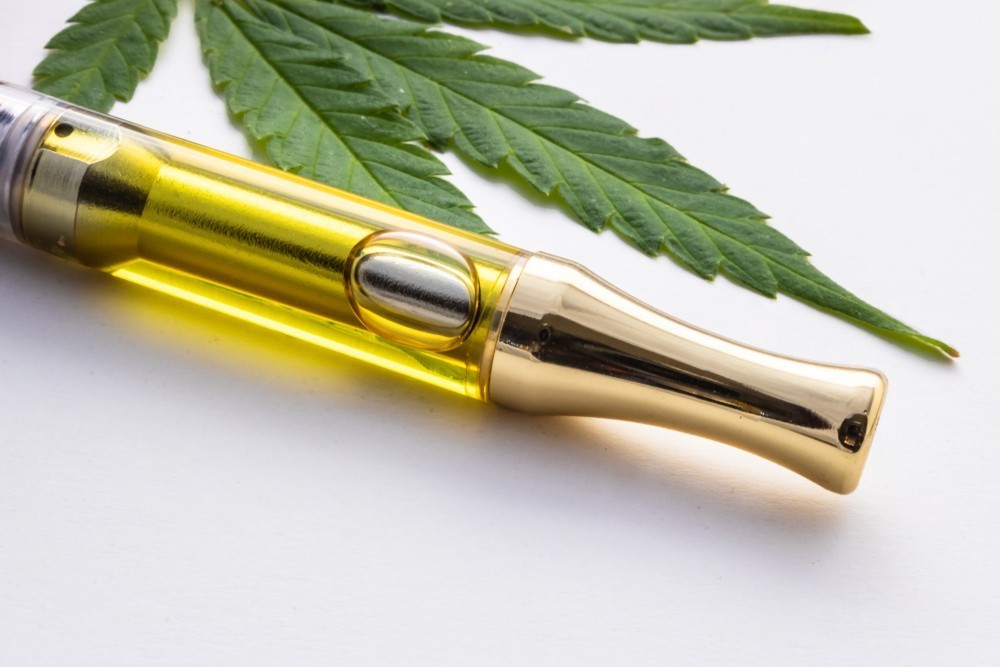As more people look for ways to relax, vaping has become a hot topic. Did you know both CBD and THC can be vaped but affect your lungs differently? This article will dive into the effects of vaping CBD versus THC on lung health Bliss CBD Gummies, comparing their impacts.
Keep reading to find out which might be safer for your breath of fresh air!
Chemical Structure of CBD and THC
CBD and THC are two of the most well-known cannabinoids found in the cannabis plant. They both have unique chemical structures that contribute to their potential benefits and psychoactive properties.
Potential benefits and sources
CBD, short for cannabidiol, is known for its potential to ease symptoms of anxiety and chronic pain without the high that THC delivers. People often use CBD oil to help manage stress levels and promote better sleep.
It primarily interacts with the body’s endocannabinoid system, influencing receptors that can modulate bodily functions like mood and discomfort. You can find CBD in various forms such as tinctures, capsules, edibles, topical creams, and vape pens designed for inhalation.
THC or tetrahydrocannabinol is famed for its psychoactive effects but also possesses therapeutic qualities appreciated in medical marijuana communities. It may aid in alleviating pain and nausea while stimulating appetite among patients undergoing treatments like chemotherapy.
THC products come from the cannabis plant and are available through dispensaries where legal status permits their sale — including oils used with vape pens geared towards a controlled pulmonary delivery method targeting respiratory system relief.
Differences in psychoactive properties
While both CBD and THC are derived from the cannabis plant, they exhibit distinct psychoactive properties. THC is known for its intoxicating effects, often causing euphoria or a “high.” On the other hand, CBD does not produce the same psychoactive response as THC.
Unlike THC, CBD is non-intoxicating and does not result in feelings of being “high” or altered mental states typically associated with marijuana use.
Furthermore, it’s important to note that the varying psychoactive properties of THC and CBD impact their usage and effects on lung health when vaped.
Effects on Lung Health
Vaping CBD compared to nicotine and THC has differing effects on lung health. This section will explore the severity of lung damage from vaping CBD, as well as safer alternatives for lung health.
Vaping CBD vs. Nicotine
Vaping CBD and nicotine have drastically different impacts on lung health. Below is a comparative analysis presented in an HTML table format:
| Aspect | Vaping CBD | Vaping Nicotine |
| Chemical Nature | Non-addictive compound found in cannabis | Addictive stimulant found in tobacco |
| Psychoactive Effects | No high, promotes relaxation | Stimulating effect, can lead to addiction |
| Lung Health Impact | Potentially less harmful, but long-term effects are unclear | Associated with respiratory issues, can exacerbate lung diseases |
| Secondhand Smoke Risk | Minimal impact due to lack of smoke | Highly dangerous to bystanders due to carcinogenic tobacco smoke |
| Regulatory Status | Less regulated, varies by jurisdiction | Heavily regulated due to known health risks |
Both substances affect the lungs differently, with CBD showing less potential for harm. The next section will delve into the severity of lung damage from vaping CBD.
Severity of lung damage from vaping CBD
Vaping CBD may lead to severe lung damage, impacting pulmonary health. Research has indicated that inhaling certain substances found in CBD vape oil can cause lung inflammation and irritation.
The long-term effects of vaping CBD on the lungs are still being studied, but caution is advised due to the potential harm it may cause.
CBD’s impact on pulmonary health should not be underestimated, and users should consider safer alternatives. It is crucial to prioritize lung health when making decisions about consuming CBD or other inhalants.
Safer alternatives for lung health
Severe lung damage from vaping CBD may prompt individuals to seek safer alternatives for lung health.
- Utilize herbal vaporizers that do not involve the combustion of plant material, reducing the intake of harmful byproducts.
- Consider sublingual or oral administration of CBD, which bypasses the respiratory system altogether.
- Explore other forms of consumption such as edibles or topicals to minimize exposure to potential lung irritants.
- Opt for high-quality, lab-tested CBD products from reputable manufacturers to ensure purity and safety.
- Consult with a medical professional to explore alternative delivery methods that suit individual health needs and concerns.
Conclusion
In conclusion, the comparative study revealed differences in the impact of vaping CBD and THC on lung health. Vaping CBD was found to have milder effects compared to nicotine, suggesting potential safer alternatives for lung health.
Understanding these distinctions is crucial in making informed choices regarding respiratory well-being when using vaping products containing CBD or THC. Further research into the pulmonary effects of vaping CBD and THC is warranted to better inform public health recommendations.
